For complex treatment of a particular disease,It is recommended to choose the moment when the pathological process is just beginning in the body.
Due to certain circumstances, it is not always possible to diagnose prostatitis at the initial stages of its development.
Despite the fact that inflammatory damage to the prostate gland is accompanied by pain, discomfort, urination disorders and other clinical signs, many men delay a visit to a urologist followed by a comprehensive examination of the body. But long-term untreated prostatitis tends to become chronic with frequent episodes of relapse.
For non-surgical correction of inflammatory changes in prostate tissue, drug treatment regimens, hardware physiotherapy procedures, therapeutic exercises, massage, as well as additional methods of alternative medicine are used.
Drug therapy
Dealing with the diagnosis and treatment of inflammatory lesions of the prostate glandurologist. If a man discovers the first symptoms of this disease, he is advised to immediatelyundergo a comprehensive examination.
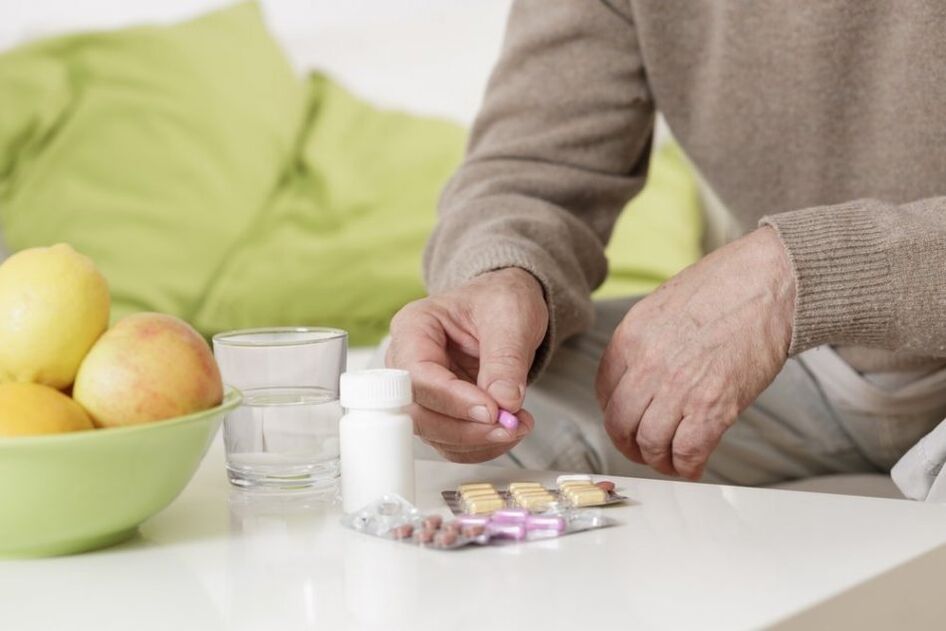
In 45-50% of cases of diagnosis of prostatitis, the inflammatory lesion of the prostate gland is infectious in nature. That is why antibacterial drugs are used to influence the cause of the disease.
For the treatment of chronic or acute infectious prostatitisit is preferable to use antibiotics from the fluoroquinolone group. This type of antibacterial agent has increased bioavailability and high penetration into prostate tissue.
The total duration of antibiotic therapy for infectious prostatitis is at least 3 months.
If antibacterial therapydrugs from the fluoroquinolone group proved ineffective, patients are prescribed drugs from the group of lincosamides or penicillins.
In case of provocation of chlamydia diseaseAntibiotics from the tetracycline group are included in complex therapy.
It is important to remember that the regimen for taking antibacterial drugs is prescribed to each man individually. A urologist should draw up a treatment plan. Any attempts to independently prescribe medications and their dosages can lead to negative consequences.
Rectal suppositories
Medicines made in the form of rectal suppositories (suppositories),are one of the most effective means for stoppinginflammatory reaction in the prostate gland.
When diagnosing an acute or chronic form of this disease, medical specialists may prescribe suchtypes of rectal suppositories:
- Suppositories containing opium alkaloid, isoquinoline derivative. These medicinal drugs have an antispasmodic and analgesic effect. In addition, under the influence of suppositories, local blood flow in the prostate gland improves.
- Candles with ammonium bituminous sulfonate. Ichthyol suppositories have bactericidal, analgesic and metabolic properties, due to which their action improves local blood flow in the prostate area.
- Candles with belladonna herb extract. The natural extract of this plant has a pronounced analgesic, antispasmodic and anti-inflammatory effect. In terms of the intensity of the therapeutic effect, belladonna extract is not inferior to NSAIDs.
- Phenylacetic acid derivative in the form of rectal suppositories. In acute cases of inflammation in the prostate gland, men are prescribed rectal suppositories, which quickly relieve inflammation and reduce the intensity of pain.
- Suppositories based on prostate extract. This medication option is effective for sexual disorders that arise against the background of inflammatory lesions of the prostate. In addition, these suppositories effectively cope with congestion in the gland and prevent the formation of blood clots.
- Rectal suppositories with prostate extract and solid fat. This complex drug is effective not only against prostatitis, but also against diagnosed male infertility, decreased erectile function and prostate adenoma.
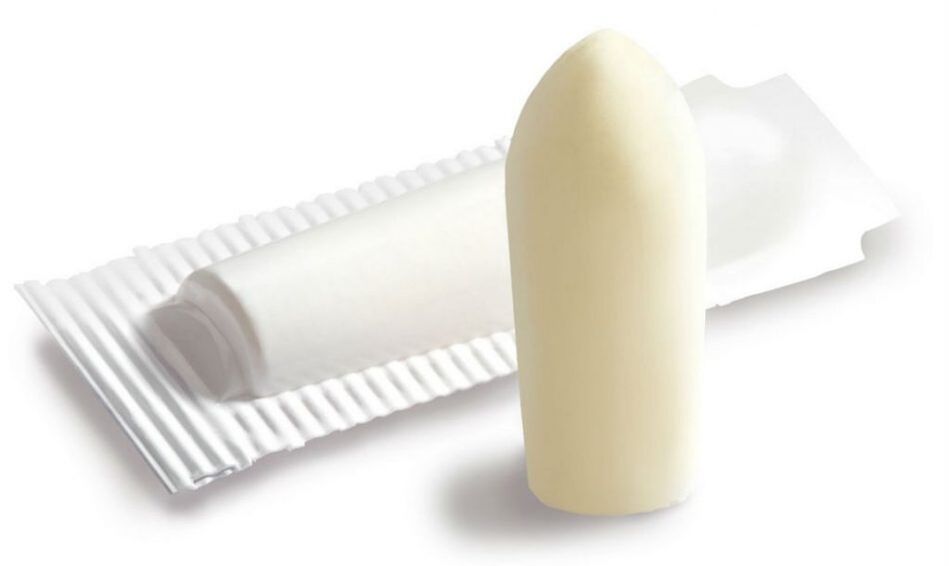
Hormonal drugs
One of the most common complications of prostatitis isdecreased erectile functionin a man. To restore it and normalize hormonal levels, as well as reduce the intensity of the development of the inflammatory process, men with inflammatory lesions of the prostate are often prescribed hormonal medications.
The most popular is a drug based on synthetic estrogen of a non-steroidal structure. Under the influence of this biologically active compound, the processes of restoration of damaged gland tissue are accelerated, and its blood supply is improved.
Alpha blockers
Men suffering from acute or chronic prostatitis have serious problems with urination. With inflammatory damage to the prostate gland, the process of emptying the bladder becomes difficult, pain, pain, discomfort, an intermittent stream of urine, and a frequent urge to urinate appear.
Medicines from the group of alpha-blockers, whichhelp eliminate muscle spasms in the pelvic area. It is thanks to the relaxation of smooth muscles that the act of urination is normalized.
Muscle relaxants
With the development of an inflammatory process in the prostate gland, a spasm of the pelvic floor muscles often occurs, as a result of which the outflow of prostate secretions and urine from the bladder is disrupted.
Using injectable or tablet forms of muscle relaxantshelps reduce muscle tone, reduce pain and normalize the outflow of biological fluids.
Immunostimulants
An important part of the complex treatment of prostatitis is strengthening the defenses of the man’s body, especially when it comes to infectious and inflammatory damage to prostate tissue.
Have a powerful immunostimulating effectcomplex multivitamin preparations, containing folic acid, vitamin C, magnesium, calcium, selenium and zinc.
Another common drug from the group of immunostimulants is a product based on meglumine acridone acetate. The immunostimulating effect of this drug is due to the fact that when it enters the human body, the production of interferon, which is responsible for the body’s immune defense, is accelerated.
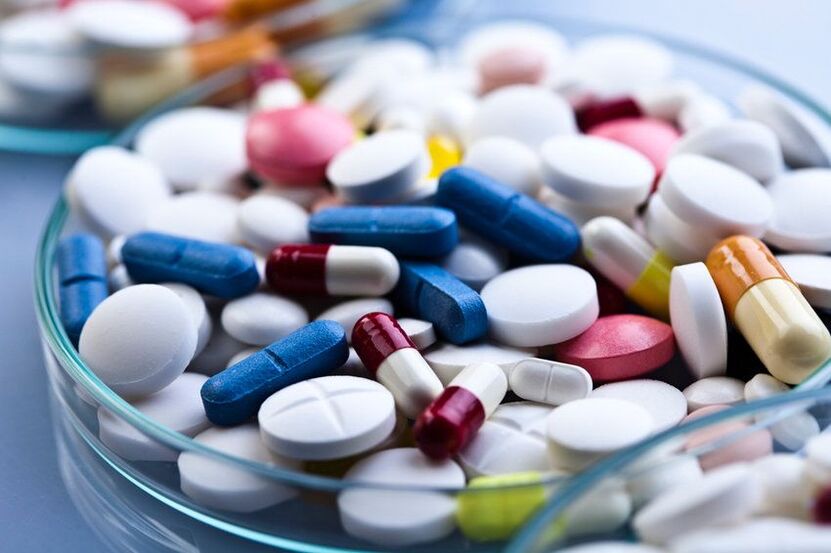
Taking an immunostimulant and multivitamin complexes can not only speed up recovery in acute prostatitis, but also reduce the risk of another relapse in the chronic form of the disease.
Complex drugs
Along with the listed groups of medicinal drugs used in the treatment of inflammatory lesions of the prostate gland, specialists in the field of urology prescribe complex medications that have a multifaceted effect on the male body.To the most effective drugsinclude:
- Antiandrogenic agent. This medicinal drug is available in tablet form and is most often used for prophylactic purposes.
- A preparation based on creeping palm extract. Numerous clinical trials have proven that this drug effectively fights not only inflammatory lesions of the prostate, but also hyperplastic changes in prostate adenoma.
- The prostate extract product is available in the form of rectal suppositories and tablets. Its active components improve blood supply to the organ, eliminate muscle spasms and reduce the intensity of pain.
- A medicine whose main active ingredient is natural seaweed extract. The drug effectively eliminates signs of an inflammatory reaction in the body and normalizes blood supply to the prostate gland.
Before using any of the listed medications, it is recommended to consult a urologist and undergo a comprehensive medical examination.
Physiotherapy
An effective way to combat the chronic form of prostatitis is hardware physiotherapy techniques.
If a chronic form of prostatitis is diagnosed, a man may be prescribed suchphysiotherapy methods:
- electrophoresiswith the use of medications,
- exposure to direct electric current(galvanization),
- ultrasonic influenceusing a rectal sensor,
- magnetotherapy,
- use of high frequency currents. For this purpose, separate devices are used that generate high-frequency pulses. A direct effect on the area where the prostate gland is located is achieved by introducing a rectal emitter.
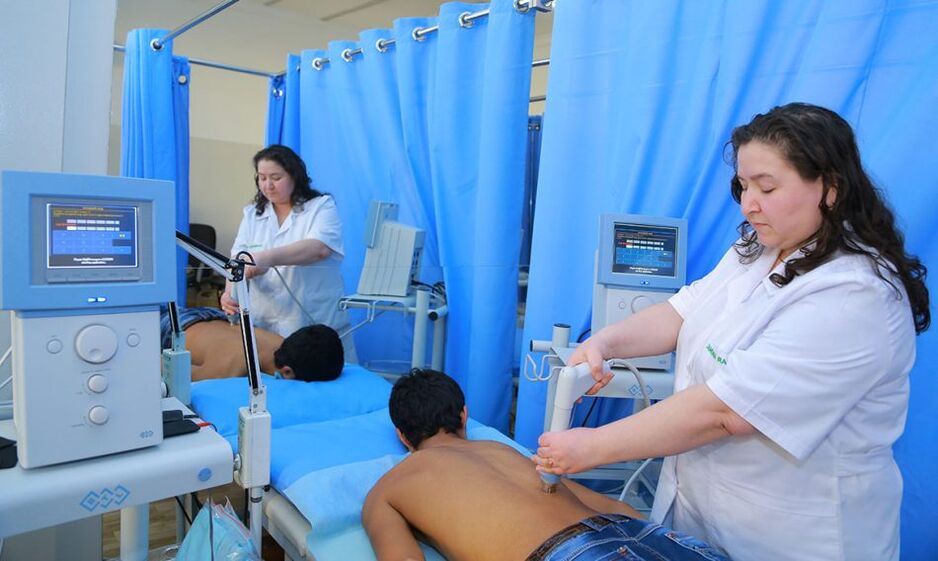
Selection of types of physiotherapeutic effects, as well as drawing up an individual schedule of procedures should be handled by the attending urologist or physiotherapist.
Physiotherapeutic techniques mentionedhave a minimal list of contraindications and side effects, therefore their use is permissible in combination with drug therapy, massage and gymnastics.
Prostate massage
Manual influence on the area where the prostate gland is located helps to improve blood flow in this area, reduce the intensity of the inflammatory process, stimulate the discharge of secretions, as well as normalize metabolic processes in the organ.
Manual prostate stimulationcan be performed either by a medical specialist in a doctor’s office or independently.
Self-massage of the prostate gland can be performed by a man at home, but before starting self-medication, it is necessary to consult with the attending urologist, master the massage technique, and also become familiar with the structural features of the rectum. Inept exposure to this area can lead to traumatic damage to the mucous membrane of the rectal area.
Massage is carried out through the anus area. When performing a massage, the physician or the man himself must monitor the discharge of glandular secretions from the urethra. If there is no discharge of this nature, this may indicate the development of complications of prostatitis, as well as the severity of the inflammatory reaction.
The total number of prostate massage sessions is 10-12 procedures.
Diet therapy
A revision of the diet has a beneficial effect not only on the condition of the male reproductive system, but also on the entire body as a whole.
Recommended to eatthose foods that are quickly digested. The daily diet should include fresh vegetables and fruits, nuts and grains, low-fat meat and fish, and natural dairy products. In addition, regardless of the form of the disease, a man should eat foods rich in zinc and folic acid. Both elements are the basis of men's health.
Strictly prohibitedincludes black tea and coffee, alcoholic drinks, sweet carbonated waters, mushrooms, fried and fatty foods, fast food and smoked meats, spices, sauces and spicy dishes.
Every man with inflammatory lesions of the prostate glandIt is advisable to completely quit smoking, since the chemicals contained in tobacco smoke contribute to the narrowing of blood vessels and disruption of blood flow in the prostate area.
Additional treatments
An effective way to treat and prevent inflammatory lesions of the prostate gland is warming therapy.
To this endregular visits to the sauna or steam bath are indicated.
It is recommended to avoid heat stress for those men who suffer from various diseases of the cardiovascular system, liver and kidneys. In addition, visiting a bathhouse or sauna is strictly contraindicated in case of benign and malignant neoplasms or severe exacerbation of the inflammatory process.
Before including these measures in the complex treatment of prostatitis,Actions should be coordinated with your doctor.
If a man has no contraindications to visiting a bathhouse, then thermal procedures will have a tonic effect on his body, improve blood circulation, accelerate metabolic processes in the body and drainage of the prostate gland.
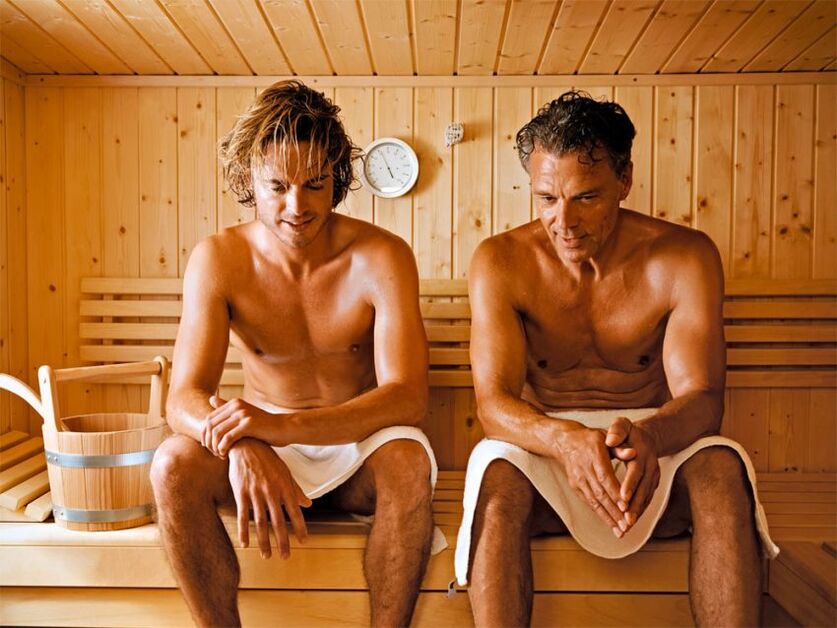
An equally popular method of treating chronic or acute prostatitis ishirudotherapy or treatment with leeches. The salivary fluid of leeches contains more than 100 biologically active elements that have a beneficial effect on the human body.
One of the most important components, hirudin, is an anticoagulant in nature. When entering the human body, hirudin prevents the formation of blood clots and improves microcirculatory processes.
In addition to hirudin, the saliva of leeches contains histamine-like compounds, acetylcholine, and carboxypeptidase inhibitors. Each of these components improves blood flow to the prostate gland, helping to reduce the inflammatory response.
Hirudotherapy in the complex treatment of prostatitis is contraindicated for men suffering from anemia, blood clotting disorders, diathesis, hypotension, deep vein thrombosis, diabetes mellitus and inflammatory skin lesions.
Each leech treatment session should be performed under the close supervision of a qualified medical professional.
Duration of treatment
Timing of complex drug therapy for inflammatory lesions of the prostate glanddirectly depend on the neglect of the pathological process, as well as on the presence of complications.
If prostatitis occurs in a severe stage, it causes irreversible changes in the glandular tissue.
If the organ is significantly damaged, conservative treatment methods can lead to long-term remission, but not to recovery. If you contact a medical specialist in a timely manner, treatment of the disease will take several months with a tendency to complete recovery.
Unlike the chronic form of the disease,acute prostatitis can be cured in less time.
Surgery for diagnosed prostatitis is a last resort, which is aimed at preserving the remaining healthy areas of glandular tissue, as well as restoring the drainage function of the gland. Surgical intervention is recommended for those men who suffer from severe urinary disorders, intense pain, and also have complications such as fibrosis of the gland tissue and the formation of calcifications.
With timely diagnosis and comprehensive treatmentProstatitis is a curable disease that does not threaten the health and life of a man.




































